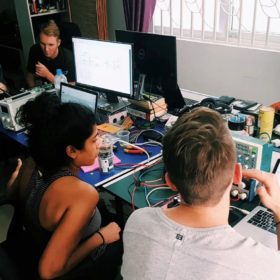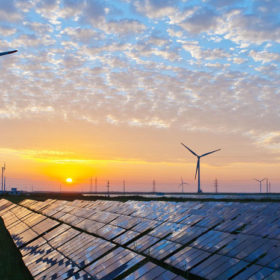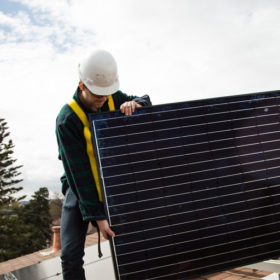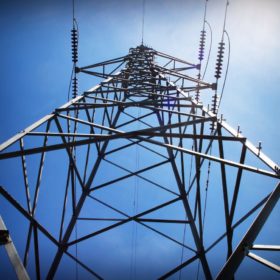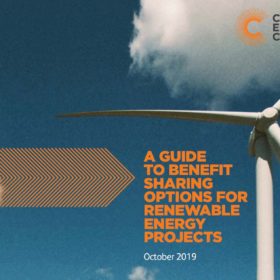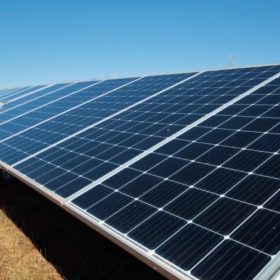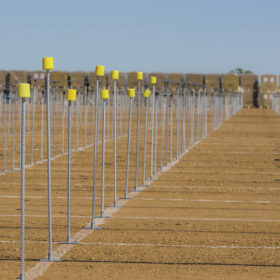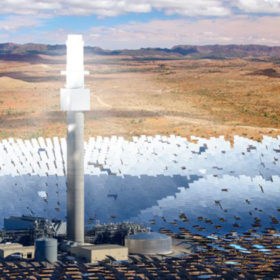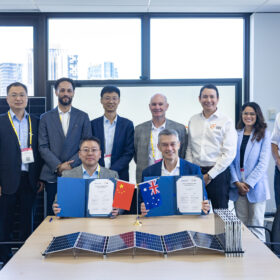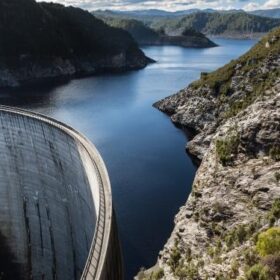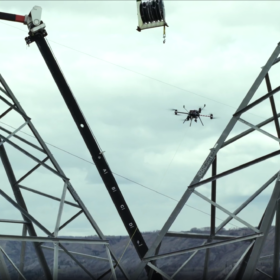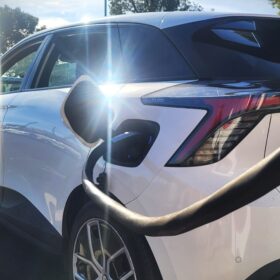Meet the Aussie startup delivering solar minigrids to remote communities from a ping-pong table
Meet Afnan Hannan, CEO and co-founder of Okra Solar, an Aussie startup looking to eradicate energy poverty using solar minigrids that has already been recognised with a global sustainability award and a best IoT startup award.
Mirvac set to build net zero energy Melbourne community with ARENA backing
With ARENA’s help, Mirvac is set to trial a net zero energy community of townhouses in the Melbourne suburb of Altona North.
Australia’s pipeline of renewable energy projects swells over 130 GW
With 2019 already a record year for utility solar, wind and storage project proposals, Norwegian-based energy analyst Rystad Energy predicts Australia’s renewables boom could see coal-fired generation extinct by 2040. According to the Australian National University (ANU), the unprecedented growth in generation from wind and solar can slash Australia’s carbon emissions by 4% over the next few years, but the Clean Energy Council sees things differently.
46,000 rooftop PV installs under Victoria’s Solar Homes program
New data on the Victorian government’s Solar Homes program show the demand for rebates for solar panels, solar hot water, solar batteries and no-interest loans has been well spread across the state.
Improved transparency of grid-scale solar and wind to ease grid constraints
The Australian Energy Market Commission (AEMC) has made a final rule to improve publicly available information about new utility-scale projects, making it easier for wind and solar developers to decide on where to locate new generators and avoid cost blowouts amid grid congestion and connection challenges.
Kennedy solar-wind-battery park faces further delays
Australian renewables developer Windlab has announced further delays on its landmark energy park in north Queensland after its EPC contractor failed to secure a fully functioning connection agreement.
CEC report makes case for large-scale renewable benefit sharing
The Clean Energy Council (CEC) has released an extensive report on the benefit of sharing options for renewable energy projects. In addition to highlighting the benefits of sharing for both project proponents and local communities, the report provides pathways to models of benefit sharing.
CEFC tables Annual Report to Australian Senate
The Clean Energy Finance Corporation (CEFC) has released its 2018-19 Annual Report on its investment into Australia’s clean energy transition. The report laud’s CEFC investment and provides optimistic reading for the energy transition.
The race has only just begun
The Australian utility-scale PV and wind industries have just gone through a record two years of construction and commissioning. More specifically, writes Rystad Energy’s David Dixon, utility-scale PV has transformed from a megawatt-scale market to one measured in gigawatts. The resultant boom in utility-scale PV in the country has attracted developers, EPCs and OEMs, from at home and across the globe.
South Australian government puts out tender for long-term, cleaner electricity supply
The state government is on a lookout for a new electricity supplier for 100% of its load. Its goal is to lock in a contract which would deliver more affordable, reliable and cleaner electricity in South Australia.
